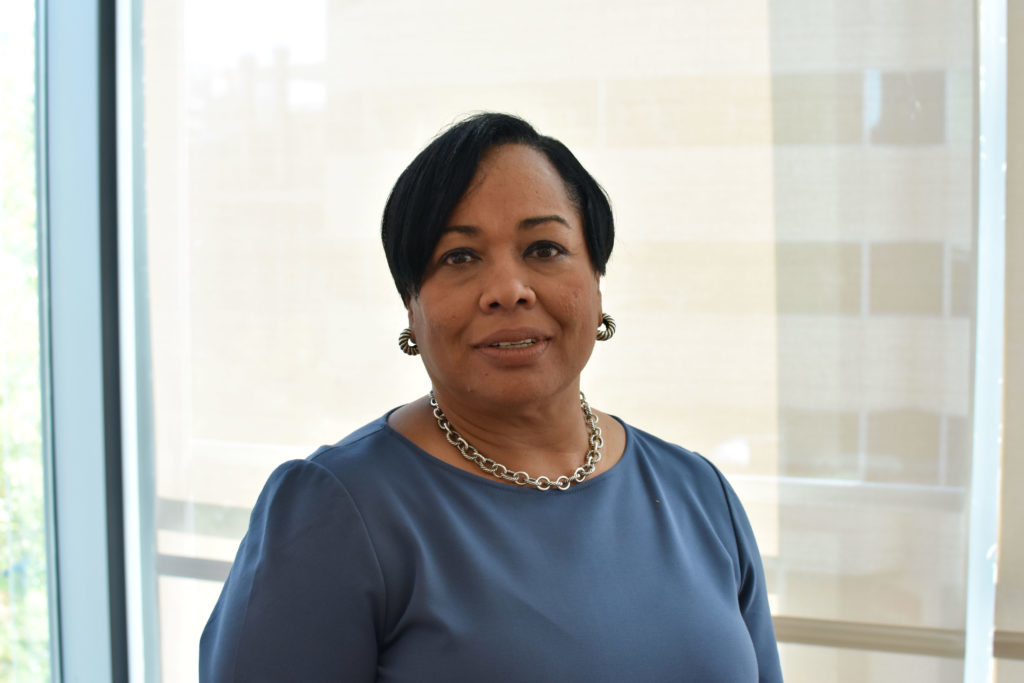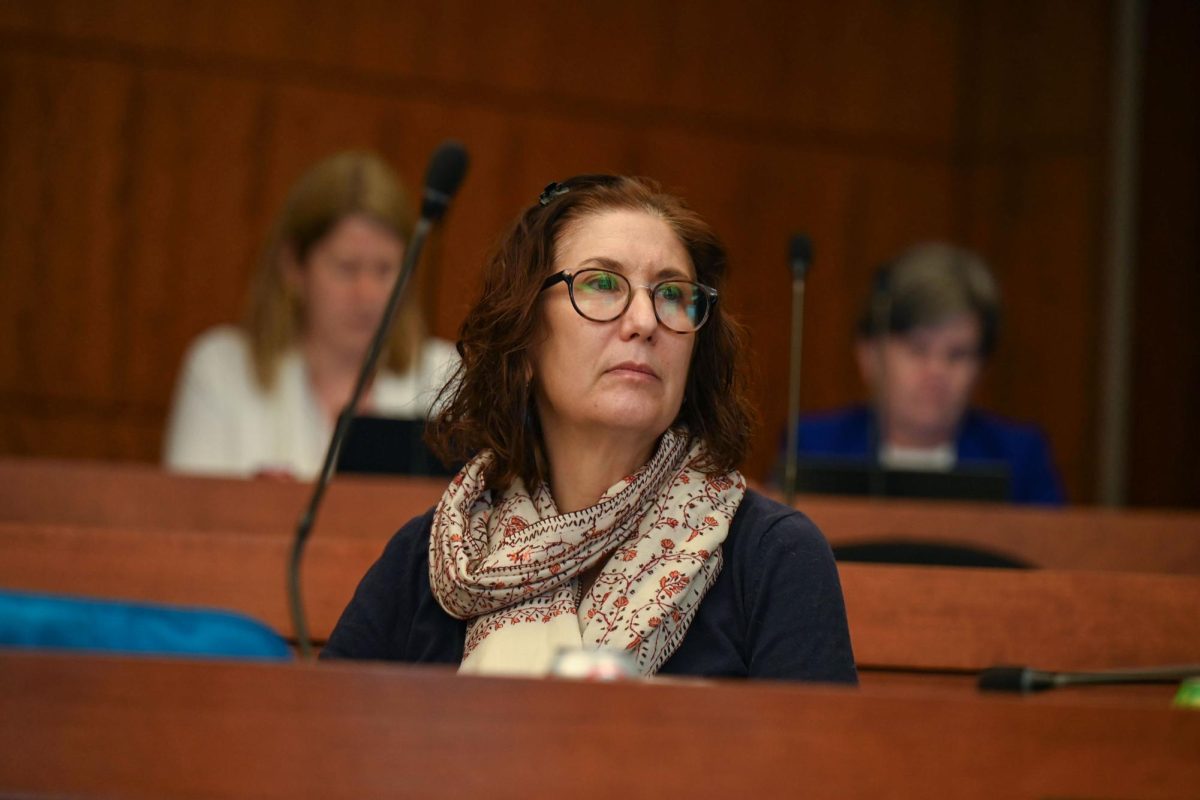As officials project losing tens of millions of dollars from the ongoing pandemic, they are doubling down on intentions to not tap into GW’s endowment.
University President Thomas LeBlanc and Board of Trustees Chair Grace Speights said at a Faculty Senate meeting Friday that they have no plans to use the University’s $1.78 billion endowment to mitigate the financial impact of the COVID-19 pandemic. Speights said officials have a fiduciary duty to protect the University’s long-term financial health despite the short-term effects of the virus.
“Tapping the endowment or reserves today would not be a prudent decision or in the best interest of GW because it will only hamper our financial standing in the future,” Speights said at the senate meeting. “We cannot sacrifice our long-term future to resolve the challenges posed by this pandemic.”
LeBlanc first announced his intent to not use the endowment in a letter to the GW community April 27.
Anthony Yezer, a faculty senator and a professor of economics, said it made sense to finance revenue losses resulting from COVID-19 by taking on new debt instead of tapping into the endowment and losing out on interest accrued to the fund tax-free.
“If we can borrow through the banks at 5 percent, especially given that we don’t pay any taxes on the gains in the endowment, we ought to do that,” he said. “I just want to point out to my colleagues that it would be nuts to prefer selling Berkshire Hathaway out of the endowment rather than borrowing, and so what you guys are doing is absolutely sound – it’s just freshman economics.”
Officials said at the meeting and in interviews they project GW will lose $45 million in revenue resulting from the coronavirus by June 30 but expect to save $20 million during that time frame from cost-saving measures, like freezing most hirings and capital projects and reducing employee travel. They said the net loss of roughly $25 million would reflect a roughly $12 million annual deficit after eliminating the University’s budgeted surplus.
Speights said there is “a lot of fat” at the University that could be cut to reduce expenses further instead of utilizing GW’s savings or endowment.
“Before going into your rainy day savings, we have an obligation and a duty to look at and see where we currently stand,” she said. “And if there are ways to cut and trim things to allow us to continue with the mission of educating our students in a great way, then that’s where the cut should come from as opposed to leaving everything the way it is and reaching into our savings.”
Francys Subiaul, a faculty senator and an associate professor of speech and hearing science, said what some people see as an area to cut is valuable to others. The process for cutting expenses should be “spelled out clearly” and the administrators making these financial decisions should be open to input, he said.
“If now is not a good time to tap into the endowment in the face of a global pandemic, where unemployment is in the double-digits and, in the chair’s words, we should expect ‘significant revenue losses,’ when would it be necessary to tap into the endowment?” he wrote in the WebEx meeting chat.
Sarah Wagner, a faculty senator and associate professor of anthropology, said the faculty should be involved in any conversations surrounding financial cuts.
“Our antennas are up,” she said. “Why? Because Chair Speights began this discussion with an admission that she sees a lot of fat to be cut. Obviously, when we hear that and then we hear ‘short- and long-term’ and ‘how do we mediate those,’ ‘how do we move from one to the other’ – that’s our point of anxiety. We need to understand what fat she sees.”
Speights encouraged faculty to contribute their ideas on ways to mitigate the financial impact of the pandemic, adding that she is committed to finding ways for more interaction with the senate as proposals are developed.
“I assure you transparency as we move forward, and I appreciate all the words of support you have offered as we have dealt with this unprecedented crisis,” she told faculty senators. “President LeBlanc will be soliciting your ideas and feedback as to how we move forward to lessen the financial impact on the University as a result of this crisis. And the Board looks forward to hearing from President LeBlanc the ideas and the feedback that you share with him.”
LeBlanc said he will take a 20 percent pay cut beginning July 1 as part of an initiative to reduce salaries in order to cut GW’s expenses. He said other top officials have agreed to take a reduction of 5 percent or more.
Diaz said in an interview earlier this month that officials had not determined an exact amount for the salary reductions but have decided upon a range.
He added that the ongoing situation is “fluid” and officials could implement additional cost-saving measures, like potentially furloughing some employees.
“There’s not really a playbook or even a model that we can point to in terms of, ‘Hey, this is exactly how things are going to happen,’” Diaz said. “It’s been consistently fluid in terms of identifying impacts and then eventually quantifying the implications of those impacts.”
Officials paused the development of GW’s next strategic plan in order to reassess key assumptions in the wake of the pandemic, like a nearly 20 percent decrease in the undergraduate population.
He said officials are considering ending some of the University’s contracts with other companies earlier than originally planned because of the ongoing pandemic.
Diaz said officials will “definitely not” extend the University’s contract with the Disney Institute, which has assisted officials in implementing LeBlanc’s institutional culture initiative. The cost of the partnership, which officials have declined to comment on, has come under intense scrutiny from many faculty and was cited in a petition signed by more than 100 faculty calling on LeBlanc to resign.
“We’re assessing the contract along with a number of other contracts to see exactly if we aren’t getting the value, given the circumstances, that we do it now,” Diaz said.








